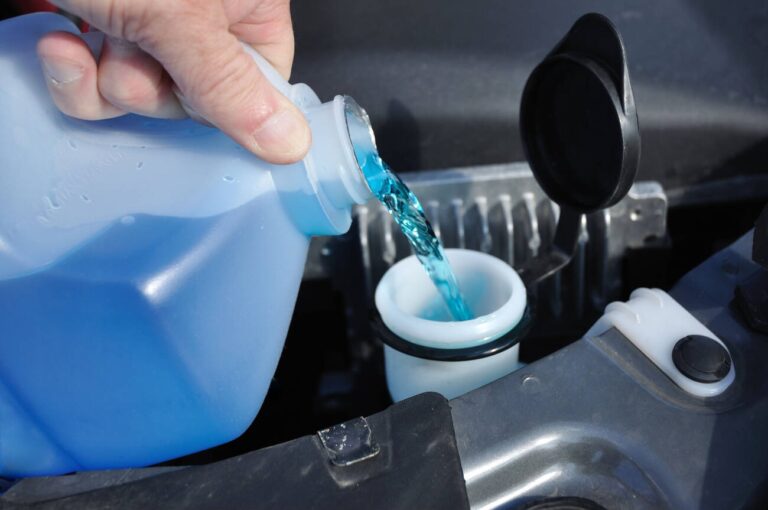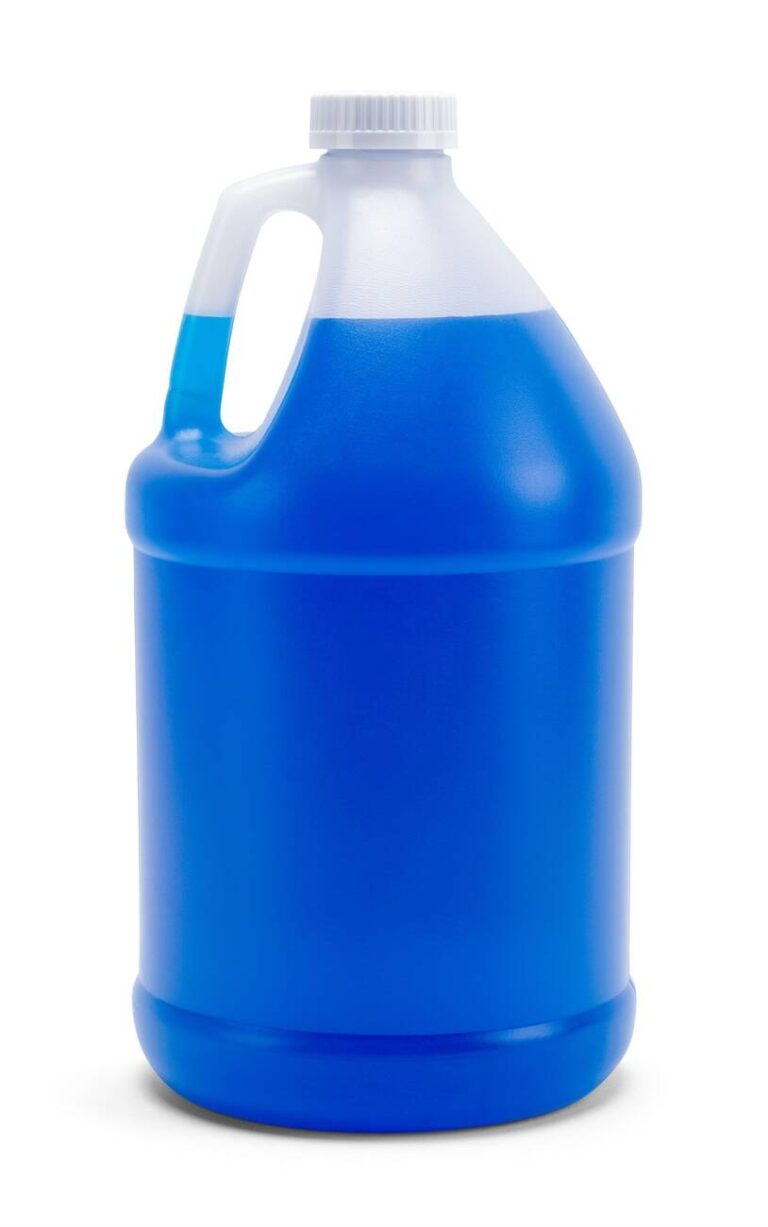Many car owners wonder whether window washer fluid is flammable or not. This seemingly simple question has significant implications for vehicle maintenance and safety. Window washer fluid is a common product used to clean windshields, but its chemical composition raises concerns about potential fire hazards. Understanding its flammability is crucial for anyone handling this fluid regularly. In this article, we'll explore the science behind window washer fluid, its ingredients, and whether it poses any risk of catching fire. By the end, you'll have a clear understanding of the safety considerations surrounding this essential automotive product.
As you drive through icy winters or dusty roads, window washer fluid keeps your windshield clear, ensuring visibility and safety. However, its effectiveness in cleaning doesn't necessarily mean it's safe in all conditions. The primary component of most washer fluids is methanol, an alcohol known for its solvent properties. While methanol itself is flammable, the concentration and formulation of commercial washer fluids can significantly reduce its risk of ignition. Yet, the question remains: is window washer fluid flammable? This article will delve into the details to provide clarity.
Flammability is a critical factor to consider when using any chemical product around your home or vehicle. Whether you're refilling your car's washer tank or storing extra fluid in your garage, knowing the risks can prevent accidents. This guide will explore the chemical makeup of window washer fluid, the conditions under which it might ignite, and how to safely handle and store it. By understanding the science behind this product, you can make informed decisions about its use and storage.
Read also:Exploring The Impactful Journey Of Nguy Vu Radio A Voice That Resonates
What Exactly is Window Washer Fluid?
Window washer fluid is a specially formulated liquid designed to clean dirt, grime, and debris from vehicle windshields. It typically contains a mix of water, alcohol (usually methanol), and detergents. The alcohol content helps lower the freezing point, making it effective in cold weather, while the detergents break down grease and grime. However, the presence of alcohol raises questions about its flammability. While the fluid is diluted, the concentration of methanol still warrants attention to safety precautions.
What are the Key Ingredients in Washer Fluid?
The primary ingredients in window washer fluid include water, methanol, and various cleaning agents. Methanol, a type of alcohol, is the key component that prevents freezing in colder climates. Its ability to dissolve grease and grime also enhances cleaning performance. However, methanol is classified as flammable in its pure form. In commercial washer fluids, the methanol concentration is diluted with water, reducing its flammability. Nevertheless, understanding the chemical composition is essential for safe handling and storage.
Is Window Washer Fluid Flammable?
This is one of the most frequently asked questions about washer fluid. While the fluid contains methanol, which is flammable, the diluted concentration in commercial products significantly lowers the risk of ignition. For a substance to be considered highly flammable, it must have a flashpoint below 100°F (37.8°C). Most washer fluids have flashpoints higher than this threshold, meaning they are less likely to catch fire under normal conditions. However, precautions should still be taken, especially when exposed to high heat or open flames.
Can Washer Fluid Ignite Under Certain Conditions?
Although window washer fluid is not highly flammable, certain conditions can increase its risk of ignition. For instance, exposing the fluid to direct heat sources or flames can cause it to vaporize, creating flammable fumes. Additionally, storing washer fluid in poorly ventilated areas or near heat sources can pose risks. It's crucial to understand these scenarios to ensure safe usage and storage. Let's explore the specific conditions that could lead to potential hazards.
How Should You Store Washer Fluid Safely?
Proper storage is key to minimizing risks associated with window washer fluid. Always keep the fluid in its original container, away from direct sunlight and heat sources. Store it in a cool, well-ventilated area, such as a garage or utility closet. Avoid keeping large quantities of washer fluid in your vehicle, as rising temperatures inside the car can increase the risk of flammable vapors forming. By following these guidelines, you can significantly reduce the chances of accidents.
What Should You Do If Washer Fluid Spills?
In the event of a spill, it's important to act quickly to prevent potential hazards. First, ensure the area is well-ventilated to disperse any flammable vapors. Then, use an absorbent material, such as kitty litter or paper towels, to soak up the spill. Dispose of the contaminated materials according to local regulations. Never use water to clean up a methanol-based spill, as it can spread the fluid and increase the risk of ignition. Taking these steps can help protect your safety and the environment.
Read also:Koger Funeral Home Walterboro Sc A Pillar Of Compassion And Dignity
What Are the Safety Precautions When Handling Washer Fluid?
Handling window washer fluid requires care and attention to detail. Always wear gloves when refilling your vehicle's washer tank to avoid skin contact with the fluid. Additionally, keep the product out of reach of children and pets to prevent accidental ingestion. If you're working in a confined space, ensure adequate ventilation to prevent inhaling flammable vapors. By following these simple precautions, you can safely use and store washer fluid without worrying about potential hazards.
Is Window Washer Fluid Flammable in Summer Conditions?
Summer heat can raise concerns about the flammability of washer fluid. While the diluted methanol concentration in commercial products reduces the risk of ignition, extreme temperatures can still pose challenges. For example, storing washer fluid in a hot garage or vehicle trunk can increase the likelihood of flammable vapors forming. To mitigate these risks, consider keeping only the amount you need on hand and storing the rest in a cooler, shaded area.
Can Washer Fluid Catch Fire During Use?
Under normal usage conditions, washer fluid is unlikely to catch fire. The fluid is designed to remain stable and safe when used according to the manufacturer's instructions. However, if the fluid comes into contact with an open flame or high heat source, it could potentially ignite. This is why it's important to avoid using washer fluid near fireplaces, barbecues, or other heat-generating appliances. By understanding the limits of its safety, you can use washer fluid confidently.
What Are the Alternatives to Commercial Washer Fluid?
If you're concerned about the potential flammability of commercial washer fluid, there are alternatives you can consider. Some DIY solutions use vinegar, rubbing alcohol, and water to create a safer, less flammable cleaning mixture. While these homemade options may not offer the same freeze protection as commercial products, they can be effective for mild weather conditions. Additionally, some manufacturers offer biodegradable or non-toxic washer fluids that may have lower flammability risks. Researching these alternatives can help you find the best solution for your needs.
What Are the Environmental Impacts of Washer Fluid?
Beyond flammability, it's important to consider the environmental impact of window washer fluid. Methanol-based fluids can be harmful to aquatic life if they enter water systems. To minimize environmental damage, always dispose of used washer fluid responsibly and avoid dumping it down drains or into the ground. Some eco-friendly alternatives are available that reduce both flammability risks and environmental harm. Exploring these options can help you make more sustainable choices.
How Can You Test the Flammability of Washer Fluid?
If you're curious about the flammability of your washer fluid, you can perform a simple test. Place a small amount of the fluid in a well-ventilated area and use a match or lighter to check for ignition. Be sure to keep a safe distance and have a fire extinguisher nearby in case of an accidental fire. However, it's generally safer to rely on the manufacturer's safety information and follow recommended usage guidelines.
Final Thoughts on Window Washer Fluid Flammability
In conclusion, while window washer fluid contains flammable components like methanol, its diluted concentration in commercial products significantly reduces the risk of ignition. By understanding its chemical makeup and following proper handling and storage guidelines, you can safely use washer fluid without worrying about potential hazards. Remember to keep it away from heat sources, store it in a cool, ventilated area, and dispose of it responsibly. With these precautions in place, you can enjoy the benefits of a clean windshield without compromising your safety.
Table of Contents
- What Exactly is Window Washer Fluid?
- What are the Key Ingredients in Washer Fluid?
- Is Window Washer Fluid Flammable?
- Can Washer Fluid Ignite Under Certain Conditions?
- How Should You Store Washer Fluid Safely?
- What Should You Do If Washer Fluid Spills?
- What Are the Safety Precautions When Handling Washer Fluid?
- Is Window Washer Fluid Flammable in Summer Conditions?
- Can Washer Fluid Catch Fire During Use?
- What Are the Alternatives to Commercial Washer Fluid?


